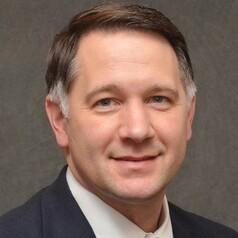
Kevin Houston
Associate Professor of Neurology and Ophthalmology, UMass Chan Medical School
Kevin Houston, OD, M.Sc. is a Doctor of Optometry with specialized training in low vision and neurological rehabilitation, focusing on restoration and rehabilitation in neurological diseases. His research focuses on restoring movement and repairing ocular structures paralyzed by stroke and other neuro-pathologies. Dr. Houston's ocular rehabilitation research has pioneered using rare-earth static magnetic materials including neodymium in prosthetic devices. Focusing on the need to develop solutions for visual impairments, Houston's Lab has combined innovative engineering and visual therapeutic technologies to diagnose and investigate the benefits of virtual reality-based oculomotor rehabilitation, perceptual motor training, spatial neglect, magnetic actuators for restoring ocular movements, magnetic prosthesis for VI nerve palsy, and improving low vision.
Houston, OD, collaborates with the U.S. National Institutes of Health, Department of Defense, Veterans Administration, and other non-profit foundations to develop new prosthetic and assistive devices and create restorative movement therapies to promote visual system recovery through continuous funding. As a clinical research specialist, patients can participate in vision rehabilitation exercises including vergence and oculomotor therapy, and prism adaptation therapy, while trialing new optic and prism glasses developed from Dr. Houston’s Vision Rehabilitation Laboratory. The goal of vision rehabilitation therapy is to develop solutions for visual impairments caused by neurological diseases.
Less ![]()
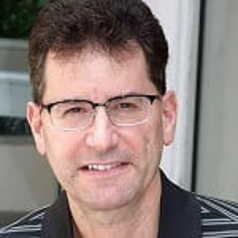
Kevin Kip
Vice President of Clinical Analytics, University of Pittsburgh
Dr. Kip has experience and interest in managing large observational epidemiological studies and clinical trials, primarily in the areas of cardiovascular diseases, novel psychotherapies, and COVID-19. He also has research interests in psychoneuroimmunology, complementary and alternative medicine, and epidemiological methods.
Less ![]()
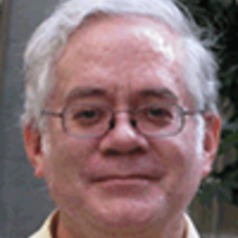
Kevin Korb
My research is in: machine learning, artificial intelligence, philosophy of science, scientific method, Bayesian inference and reasoning, Bayesian networks, artificial life, computer simulation, epistemology, evaluation theory.
See http://www.csse.monash.edu.au/~korb/ The page is out of date, but accurate as far as it goes.
Less ![]()
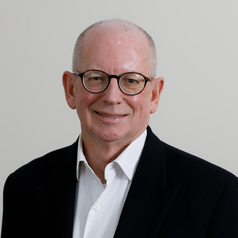
Kevin McConkey
Emeritus Professor , UNSW Sydney
An Emeritus Professor of Psychology at the University of New South Wales, Sydney, Australia, Kevin McConkey has worked in universities in Australia, Canada, China, and the USA. His publications span psychology and management. His recognition includes appointment as a Fellow of the Academy of the Social Sciences in Australia, a Fellow of the Australian Institute of Company Directors, and a Member of the Order of Australia. He has experience in the governance and management of universities in Australia and overseas, including in the roles of President, Academic Board, University of New South Wales and Deputy Vice-Chancellor, University of Newcastle. Since leaving full-time employment, he has undertaken higher education and other consultancies in Australia and across the Asia-Pacific and Middle East regions, in areas such as governance, management, strategic direction, quality assurance, international relationships, research activities, and risk management.
Less ![]()
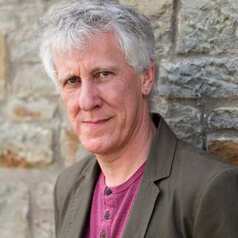
Kevin Mills
Professor of English Literature, University of South Wales
My main research interests lie in the exploration of language and representation. My doctoral research and the book based on it (Justifying Language) extrapolated from the writings of Saint Paul a theory of interpretation formulated in dialogue with the work of modern theorists and philosophers including Mikhail Bakhtin, Jacques Derrida, Paul Ricoeur and Emmanuel Levinas.
In Approaching Apocalypse my focus shifted to Victorian literature in order to examine the persistence and transformation of an ancient literary mode during a period characterised by literary realism, utilitarian thought, demythologising of the bible, technological progress and Darwinism.
My third book contributed to the highly praised ‘Critical Inventions’ series published by Sussex Academic Press. The Prodigal Sign combines traditional modes of critical writing with dramatic monologues, parables, autobiography and less-easily defined modes of writing, in order to characterise the critical enterprise as a set of prodigal procedures and practices.
My poetry collection Stations of the Boar draws on the eleventh-century life of St Cadoc. I collaboratied with my brother, Vic Mills, on a theatrical production based on the research that underpinned that collection. The play Cadoc and the Drowned Boys was performed in Churches named after the saint around south east Wales.
I am currently working on another collection of poems based on the hymns of an ancient Mesopotamian priestess, and on a novel set in the 1590s.
Less ![]()
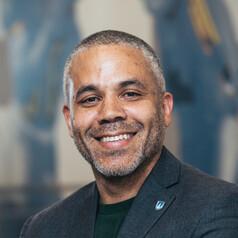
Kevin Milne
Associate professor, Kinesiology, University of Windsor
Kevin Milne is an Associate Professor in the Faculty of Human Kinetics at the University of Windsor. He teaches and studies in the area of exercise physiology.
Less ![]()
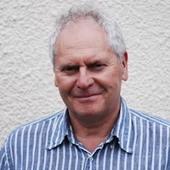
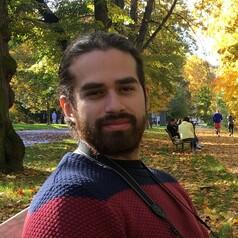
Kevin Navarrete
Investigador en el laboratorio de Biología Molecular de bacterias patógenas, Instituto de Microbiología, Praga, Czech Academy of Sciences
Realicé mis estudios de Licenciatura y Maestría en la Universidad Nacional Autónoma de México. A lo largo de mi formación académica he laborado en proyectos relacionados con la salud humana. Trabajé en la expresión heteróloga de proteínas de Mycobacterium tuberculosis; en el desarrollo y expresión de antivenenos en contra de la picadura de alacranes mexicanos y actualmente investigo la interacción patógeno-hospedero de la bacteria Bordetella pertussis, agente etiológico de la tos ferina.
He publicado artículos de divulgación de la ciencia en revistas y diarios en México y España
Less ![]()
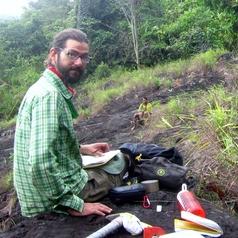
Kevin Norton
Associate Professor in Geochemistry, Te Herenga Waka — Victoria University of Wellington
I am a geomorphologist and geochemist that specializes in measuring change at Earth's surface. Much of my work has revolved around quantifying how quickly rock can be turned into soil and subsequently how quickly that soil is eroded away. I use cosmogenic nuclides as an analytical tool for determining rates and dates at Earth's surface.
Less ![]()
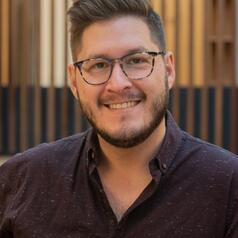
Kevin Olsen
UKSA Mars Science Fellow, Department of Physics, University of Oxford
I am working on data analysis for the ExoMars Trace Gas Orbiter Atmospheric Chemistry Suite. My objective is to measure high quality vertical profiles of gases present in the atmosphere of Mars, to search for undetected species, such methane and other organics, and chlorine- or sulphur-bearing molecules. I use these results to help understand the photochemistry, dynamics, and climatology of Mars.
Less ![]()
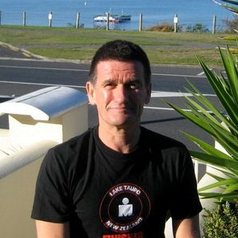
Kevin Orrman-Rossiter
I have always been fascinated by the role and impact science has in society. This extends beyond the obvious utility of science - technology, to the communication and influence it has on how we view ourselves and our universe, both in the past and our ever changing present. The other side of that is my current research interest - what makes science different to other forms of knowledge? Seems reasonable for someone who studied physics - after growing up with a telescope, geology pick and a chemistry set and wanting to become an astronaut.
Meanwhile I manage engagements between the University (of Melbourne) and Industry and Government bodies. For more than 20 years I worked as a research scientist in both academia (RMIT University & Salford University) and industry (Amcor Research & Technology Centre).
As well as holding an ARC Queen Elizabeth II Fellow, I held fellowships and grants from the UK Ministry of Defense (Royal Signals & Radar Establishment, Malvern), the UK Science and Engineering Research Council and the Australian Research Council. I have also worked in corporate, strategy, marketing and consulting roles.
A lapsed triathlete I have been known to race and enjoy the occasional ultra trail-run.
Less ![]()
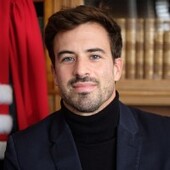
Kevin Parthenay
Professeur des Universités en science politique, membre de l'Institut Universitaire de France (IUF), Université de Tours
Less ![]()
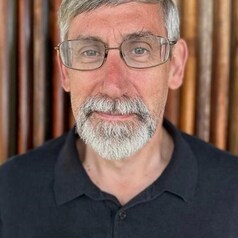
Kevin Riehle
Lecturer in Intelligence and Security Studies, Brunel University London
Dr Kevin Riehle retired in 2021 from a 30+ year career in the U.S. national security community, with tours in the Federal Bureau of Investigation, National Counterintelligence Center, U.S. European Command Joint Analysis Center, DoD Counterintelligence Field Activity, Defense Intelligence Agency, and the Office of the Under Secretary of Defense for Intelligence. He also retired in 2014 as a U.S. Navy Reserve intelligence officer with the rank of commander.
During his career, Riehle focused on analysing foreign intelligence services and supporting counterintelligence activities to neutralise the threats they pose. He finished his career as an associate professor of strategic intelligence at the National Intelligence University, teaching courses and chairing over 40 master's theses on intelligence, counterintelligence, and Eurasia-related topics. He also served as the department head for the Collection, Analysis and Counterintelligence Department.
After retirement, he was an Associate Professor for two years in the University of Mississippi's Center for Intelligence and Security Studies, teaching courses on U.S. national security policy, intelligence analysis, and counterintelligence, and leading student capstone projects and undergraduate honors theses.
He moved to Brunel in 2023.
Qualifications
PhD in War Studies, King's College London
Diploma, Command and Staff Program, U.S. Naval War College
MS of Strategic Intelligence, Joint Military Intelligence College
BA in Russian and Political Science, Brigham Young University
Responsibility
Teach courses on intelligence and international security; supervise master's disserations
Less ![]()
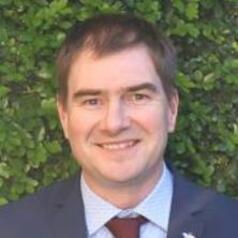
Kevin Thomas
Professor of Environmental Health, The University of Queensland
Professor Kevin Thomas is Director of the Queensland Alliance for Environmental Health Sciences (QAEHS). Kevin is an environmental health scientist with a particular interest in understanding the environmental exposures associated with contaminants of emerging concern (CECs) with the goal of protecting environmental and human health. Kevin also leads the Minderoo Centre- Plastics and Human Health at UQ and is Deputy-Director of the Australian Research Council Industrial Transformation Training Centre for Hyphenated Analytical Separation Technologies (HyTech).
His current research is focused on understanding human exposure to plastics pollution and developing mass spectrometric analytical methods for characterisng plastics and other CECs, assessing community-wide health status through analysing wastewater (wastewater-based epidemiology) and establishing alternative approaches to exposure monitoring, for example explanted silicone prostheses and wristbands.
Less ![]()
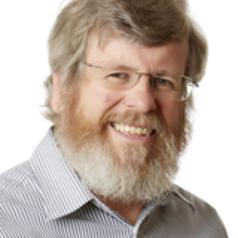
Kevin Tolhurst AM
Hon. Assoc. Prof., Fire Ecology and Management, The University of Melbourne
Dr Kevin Tolhurst AM is Hon. Assoc. Prof. in Fire Ecology and Management in the Department of Ecosystem and Forest Sciences, University of Melbourne based in Creswick.
Kevin provides expert advice on fire behaviour and fire suppression strategies at major bushfires. Some examples include the Black Saturday fires in Victoria in 2009, and the Great Divide Fires in 2007. Kevin has been involved in several inquiries and court cases involving fires including: Linton Coronial Inquiry, Canberra Coronial Inquiry, House of Representative 2003 Inquiry, 2005 Wangary Coronial Inquiry S.A., the 2008 Parliamentary Inquiry into the 2007 fires in Victoria, and the 2009 Victorian Bushfires Royal Commission.
Kevin’s research activities were centred around developing a bushfire risk management decision support system to be used nationally. He is also active in running specialist training nationally for Fire Behaviour Analysts.
His research and consulting interests include:
• Wildfire behaviour prediction
• Development of prescribed burning techniques and guidelines
• Landscape scale fire ecology management
• Fire risk management
• Ecological impacts of repeated fires
http://www.forestscience.unimelb.edu.au/people/staff/kevin_tolhurst/index.html
Less ![]()
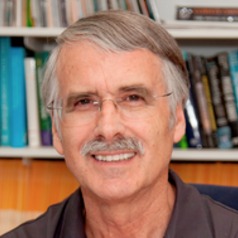
Kevin Trenberth
From New Zealand, Kevin Trenberth is a distinguished senior scientist at NCAR, the National Center for Atmospheric Research, where he has worked since 1984. After a doctoral degree at MIT, and a stint as a professor at University of Illinois, he joined NCAR. He has been heavily engaged in the Intergovernmental Panel on Climate Change (and shared the Nobel Peace Prize in 2007), and the World Climate Research Programme (WCRP). He recently chaired the Global Energy and Water Exchanges (GEWEX) program under WCRP. He has over 240 refereed journal articles and over 520 publications and is one of the most highly cited scientists in geophysics.
Less ![]()
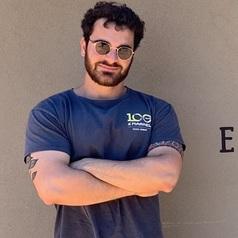
Kevin Vezirian
Maître de conférences, Université Savoie Mont Blanc
Kevin Vezirian is a lecturer (Maître de conférences) at the University Savoie Mont-Blanc and a Honorary Research Fellow at the University of Western Australia. He is interested in the understanding of human-animal relations through the lens of social psychology.
Less ![]()

Kevin Warwick
Deputy Vice-Chancellor (Research), Coventry University
Professor Warwick is Deputy Vice-Chancellor (Research) at Coventry University. His own areas of research interest include artificial intelligence, biomedical engineering, control, robotics and cyborgs.
Previously Kevin was Professor of Cybernetics at the University of Reading between 1988 and 2014, including periods as Head of Department and Head of the School of Engineering and Information Sciences. He left school in 1970 and joined British Telecom as an Apprentice at the age of 16. He took his first degree at Aston University, followed by a PhD and a research post at Imperial College London. He subsequently held positions at Oxford University, Newcastle University and Warwick University before moving to Reading and then Coventry.
Kevin is a Chartered Engineer, a Fellow of the Institution of Engineering and Technology and a Fellow of the City and Guilds of London Institute. He is a Visiting Professor at the Czech Technical University, Prague, Strathclyde University and Reading University. In 2004 he was Senior Beckman Fellow at the University of Illinois Urbana-Champaign, USA. He is on the advisory board of the Instinctive Computing Laboratory, Carnegie Mellon University, Pittsburgh and the Centre for Intermedia, Exeter University. In 2000 Kevin presented the Royal Institution Christmas Lectures.
Kevin is a member of the European Academy of Sciences and Arts. He has also been awarded higher doctorates (DScs) by Imperial College and the Czech Academy of Sciences as well as receiving 7 Honorary Doctorates from UK Universities, including one from Coventry. He has been awarded the IEE Achievement Award, the IET Mountbatten Medal and the Ellison-Cliffe medal of the Royal Society of Medicine.
Less ![]()
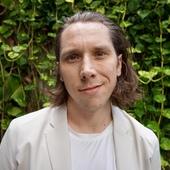
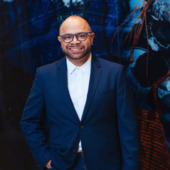
Kevin Yow Yeh
Lecturer, Carumba Institute and Director and Principal Researcher, Institute for Collaborative Race Research, Queensland University of Technology
Less ![]()

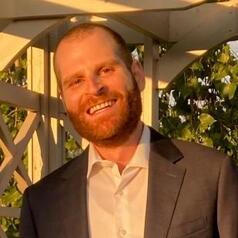
Kevin F. Boehnke
Assistant Professor of Anesthesiology, University of Michigan
I am an Assistant Professor in the Department of Anesthesiology and the Chronic Pain and Fatigue Research Center at the University of Michigan medical school, where I study chronic pain, cannabis, and psychedelics. I was diagnosed with fibromyalgia 15 years ago, and draw from both my lived experience as a patient and research background in this article. I have seen and experienced firsthand the ways that clinicians and patients talk about chronic pain medications, and find them to generally be disempowering to the patient, clinician, and drugs themselves. My goal in this article is to help provide a new and more useful lens to think about medications, especially given the poor treatment outcomes for people with chronic pain, the frustration providers express about treating these “challenging patients”, and the ongoing opioid overdose crisis.
Less ![]()
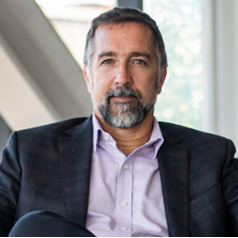
Kevin Lawrence McGuire
Instructor, Faculty of Engineering, John M Thompson Centre for Engineering Leadership and Innovation, Western University
Professional Engineer with membership in PEO, PMI & ASCM
Experienced professor, instructor and board member
Master’s Degree: University of Western Ontario - M. Eng. Mechanical Engineering 2006
Bachelor's degree: University of New Brunswick - B. Sc. Mechanical Engineering 1991
A professional engineer for 28 years
Affiliated with Western University for 22 years, 17 of these years in some form of instructing capacity
After 30 years practicing engineering in the private sector, now in my 4th year as a full-time member of faculty
Less ![]()
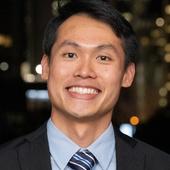
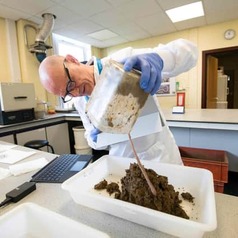
Kevin Richard Butt
Reader in Ecology, University of Central Lancashire
Kevin teaches ecological, field-based and research-related subjects within Biology, Geography and Environmental Sciences. His expertise lies within the realms of soil ecology. Kevin’s primary focus is on research and, for example, he has collaborated with the Natural History Museum, Forest Research, Scottish Natural Heritage and the British Land Reclamation Society. Overseas research has involved work with numerous Universities and other institutions. Kevin also supervises research students in areas of applied ecology.
Kevin has published widely in the sphere of soil ecology with a focus on the use of earthworms and the services they provide. These ecosystem services can be harnessed e.g. to improve soil quality within the context of soil restoration and in low input agriculture. Kevin’s research also involves organic waste management and ecotoxicology.
Kevin joined the University of Central Lancashire in 1994. He was initially involved with teaching in areas of Conservation and Environmental Management, but over the years he has developed his research profile. This has led to National and International collaborations in temperate regions across the world. Kevin has spent time working in Ohio, USA, with the United States Department of Agriculture and in Finland at the Natural Resources Institute (LUKE). He is also visited in Preston by researchers keen to experience our earthworm husbandry facilities and visit active field experiments. Kevin has made numerous broadcasts on local and National radio and TV and was interviewed on BBC Radio 4 in 2016 about the discovery of the largest earthworm found in Britain on the Isle of Rum. Kevin has organised research meetings in Wales (2002), Scotland (2014) and in Poland (2018).
Less ![]()
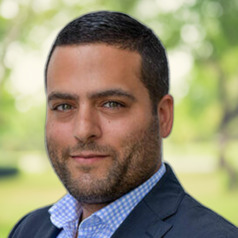
Kevin Sevag Kertechian
Associate Professor, School of Management, ESSCA
Associate Professor in HRM at ESSCA School of Management with 5 years of combined experience in academia and industry. Demonstrated ability to develop and deliver innovative curriculum in HRM, and effectively communicate complex ideas to diverse audiences. Adept at mentoring students and fostering a collaborative learning environment.
Less ![]()
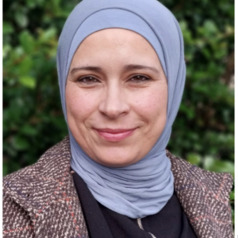
Khadeejeh AL-Smadi
PhD Candidate, Frazer Institute,, The University of Queensland
Khadija AL Smadi is a PhD candidate at the University of Queensland. Her interest is in Skin cosmeceuticals and treatment of skin disorders. Her work revolves around formulation development and characterisation. She has expertise in novel and unique skin drug delivery vehicles and their assessment for pharmacokinetic and pharmacodynamic outcomes. Khadija’s PhD is focused on treatment of Vitiligo with novel Vitamin D formulations. Khadija’s work also involves testing skin product sensorial attributes through Sensory Panel tests.
Less ![]()
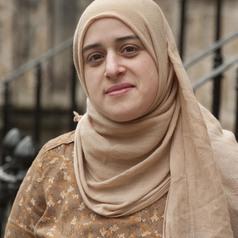
Khadijah Elshayyal
Research Fellow, Alwaleed Centre for the Study of Islam in the Contemporary World, The University of Edinburgh
Khadijah Elshayyal is a Research Fellow at the Alwaleed Centre for the Study of Islam in the Contemporary World at the University Of Edinburgh. She is currently working on the ESRC-funded Digital British Islam project. Her research interests include the political agency of Muslims in diaspora contexts, on which she has published widely, and is author of Muslim Identity Politics: Islam, activism and equality in Britain (IB Tauris, 2018) and Scottish Muslims in Numbers: understanding Scotland’s Muslims through the 2011 Census (University of Edinburgh, 2016).
Less ![]()
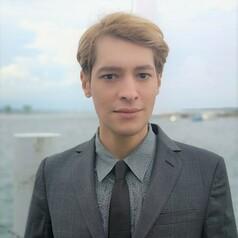
Khalid Tinasti
Chercheur au Center on Conflict, Development and Peacebuilding, Graduate Institute – Institut de hautes études internationales et du développement (IHEID)
Khalid Tinasti est chercheur au CCDP au Graduate Institute à Genève et chercheur invité David F. Musto au International Center for Drug Policy Studies à l'université de Shanghai. Il est également directeur des relations extérieures de la Climate Overshoot Commission. Il a été directeur de la Global Commission on Drug Policy, et chercheur invité au Global Studies Institute à l’université de Genève. Avant de rejoindre la Global Commission comme analyste politique en 2013 et Secrétaire général en 2016, il a travaillé comme consultant pour l’ONUSIDA, l’OMS, l’IHEID et pour d’autres. Avant cela, Khalid était chargé de mission au cabinet du Ministre de la Ville en France après avoir travaillé comme chargé d’administration au Gabon.
Less ![]()
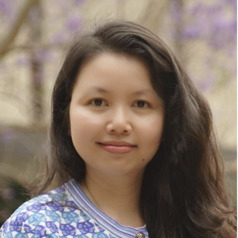
Khanh Phan
Postdoctoral research associate, Frazer Institute, The University of Queensland
Dr. Khanh Phan is a postdoc at Frazer Institute, The University of Queensland. She has played vital roles in current research projects funded by the U.S FDA which aim to improve the accessibility of affordable topical medications by revolutionizing the way generic products are regulated. This ground-breaking method of regulating topical products is based on a thorough assessment of all measurable Critical Quality Attributes (CQAs) of products. Her work contributes remarkably to develop topical formulations and their Q3 characterization. She also designs and conducts the Sensory Panel studies with topical gels and creams.
Less ![]()
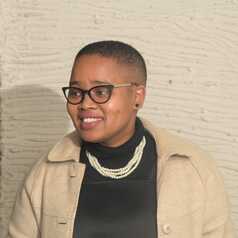
Khanyisile Yanela Twabu
Acting Deputy Director in the Directorate: Academy Applied Technology and Innovation (AATI) under Information Communications Technology Department, University of South Africa
I am currently employed as an Acting Deputy Director in the Directorate: Academy Applied Technology and Innovation (AATI) under Information Communications Technology Department. AATIs purpose is to Conduct research, develop and deploy innovative technology solutions for teaching, learning and student support through turning ideas into value-generating digital solutions in support of the Unisa Academic Project. Since 2019, I was employed as an Acting Deputy Director in the Directorate: Multimedia Centre ICT Department to administratively manage production of audio-visual productions.
With the City and Guilds International Advanced Diploma in Teaching, Training and Assessing Learning, I have dealt with designing, initiating and implementation of all e-learning projects as well as demonstrating the understanding of the outcomes-based education and training approach within the context of a National Qualifications Framework. With a Postgraduate diploma in Tertiary Education (PGTE), I comprehend Theoretical frameworks and research, Instructional techniques and multimedia, Curriculum development and assessment, Leadership, management and support systems as well as Teaching, learning and development in adult education. Since Unisa is an ODEL university, online teaching and learning also formed part of my master’s degree in education (Curriculum Studies). I hold Advanced Diploma in Visual Arts, master's degree in education, Building Tomorrows Leaders course, PHD in Education probing competitive and sustainable ICT and multimedia frameworks for online teaching and learning at a high performing Odel institution.
Less ![]()
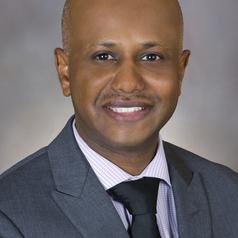
Khidir Dalouk
Assistant Professor of Medicine, Oregon Health & Science University
Dr. Khidir Dalouk is a cardiac electrophysiologist specializing in the treatment of heart-related arrhythmias. He offers inpatient and outpatient treatments including procedures for pacemakers, defibrillator implants, EP studies and ablations for simple and complex arrhythmias including SVT (abnormally fast heart rate), atrial flutter, atrial fibrillation and ventricular tachycardia.
Dr. Dalouk believes in patient-centered care. He enjoys interacting with patients and their families and keeping them informed about their diagnosis, treatment and overall care. He feels honored by the privilege of providing their care and finds great satisfaction when they feel and get better.
In his free time, he enjoys traveling, playing soccer, watching documentaries and doing humanitarian work.
Less ![]()
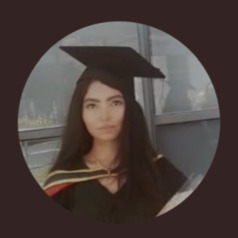
Khizra Tariq
PhD Candidate in the Nutrition, Psychopharmacology & Brain Development Unit, University of Salford
I am a second-year PhD student researching food insecurity (lack of access to healthy and nutritious food) and obesity. More specifically, my research looks at childhood food insecurity and its impact on adulthood eating behaviours. During my time as a master's student, I was able to publish one journal article https://www.ijmar.org/v9n2/22-006.html
Less ![]()
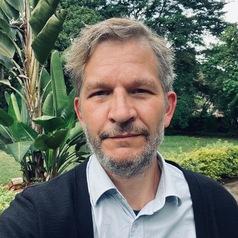
Khristopher Carlson
Senior Researcher and Coordinator of the Small Arms Survey's Human Security Baseline Assessment project on Sudan and South Sudan, Graduate Institute – Institut de hautes études internationales et du développement (IHEID)
Khristopher Carlson is a senior researcher and coordinator of the Human Security Baseline Assessment (HSBA) project for Sudan and South Sudan at the Small Arms Survey. Before joining the Small Arms Survey in 2012, Carlson was a researcher with the Feinstein International Center at Tufts University.
Over the past 20 years he's led projects and conducted field research in Ethiopia, Kenya, Sierra Leone, Somalia, Sudan, South Sudan, Uganda, and Bosnia & Herzegovina on armed conflict, children associated with armed groups, human rights in conflict, and weapons trafficking.
Less ![]()
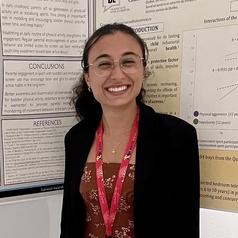
Kianoush Harandian
PhD Candidate, School of Psychoeducation, Université de Montréal
PhD Candidate in Psychoeducation studying the importance of positive daily activities such as physical activity, family meal sharing and reduced screen use.
Less ![]()
- Market Data




















